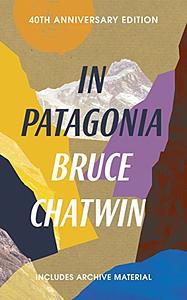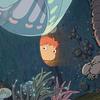Take a photo of a barcode or cover
Read this for a man. I liked the bits where he was describing the landscape and his own interactions with the people he met but the historical bits dragged for me
This book is considered a classic in travel literature. When it was published in the U.S. it became an instant bestseller. The style is interesting, with the stories a mixture of myth, historical pieces, and Chatwin’s impressions of people he meets and the landscapes of the Patagonian region. I think this book is more about Bruce Chatwin than anything else, but it did provide some jumping off places for further reading. I’d like to explore more current non-fiction and fiction by Chilean and Argentinian authors.
adventurous
mysterious
reflective
slow-paced
Like reading a fever-dream
I struggled to get into this book. I made it about half way through and gave up. There wasn't anything that I felt grabbed my attention, and certainly there was nothing to hold it. I felt disappointed putting it down but I just couldn't finish it.
A blur of fiction and fact, and fantastical characters with their stories.. Fantastic style if you don’t mind being a bit confused throughout
challenging
informative
reflective
slow-paced
Este relato de viagens de Bruce Chatwin surpreende pela positiva já que, para além de descrições maravilhosas dos lugares visitados, lega-nos uma colecção de histórias intrigantes dos habitantes da região. Durante os seis meses que Chatwin passou na Patagónia, a sua viagem incidiu na busca de pessoas e de lugares com história. A cada recomendação, ele avança e descobre e vive a Patagónia, e é esta, a sua Patagónia que tão bem nos descreve, mágica e intensa.
“Anselmo a aconselhou-me a visitar o poeta, o Maestro, como lhe chamava. O poeta vivia sozinho numa cabana de duas divisões à beira-rio, num lugar isolado coberto de damasqueiros. (…) Os seus dedos apertaram-me o braço e fixou-me com um olhar intenso e luminoso.
- Patagónia! – exclamou. – É uma amante possessiva. Enfeitiça. Uma autêntica sedutora. Envolve-nos nos seus braços e nunca mais nos deixa partir.
A chuva tamborilava no telhado de lata. Durante as duas horas que se seguiram, ele foi a minha Patagónia. “ (p. 63)
“Archie Tuffnell adorava a Patagónia e chamava-lhe «Velha Pat». Gostava da solidão, dos pássaros, do espaço e do saudável clima seco. Tinha administrado uma fazenda de criação de carneiros durante quarenta anos por conta de uma grande companhia inglesa. Quando chegou a altura da reforma, não pôde suportar a ideia de se encafuar na Inglaterra e tinha comprado a sua própria terra, trazendo com ele dois mil e quinhentos carneiros e «o meu homem Gómez» . Archie doara a casa à família Gómez e vivia sozinho numa casinha prefabricada. A sua organização doméstica era um tratado de ascetismo: um chuveiro, uma cama estreita, uma secretária e dois bancos, mas nenhuma cadeira. “ (p.184)
De Norte a Sul, entre a costa e o interior, o autor vai deambulando em busca de personagens e de lugares marcantes (históricos, lendários, míticos) na construção da Patagónia. “ O estreito de Magalhães é mais um caso em que a natureza imitou a arte” (p.218). Ele cruza histórias de imigrantes, de índios, de colonizadores, de navegadores (Fernão de Magalhães) com os lugares que vai visitando. Assim, a sua narrativa é construída de histórias contadas pelas figuras invulgares que habitam a região: contadores de histórias, exilados, bandidos, fugitivos, marinheiros, donos de bares, criadores de gado, gaúchos, mineiros, camionistas (que lhe davam boleia), sindicalistas, entre muitas outras …
Se a Patagónia já me fascinava (e nunca lá estive) então, agora, ainda mais!
“Anselmo a aconselhou-me a visitar o poeta, o Maestro, como lhe chamava. O poeta vivia sozinho numa cabana de duas divisões à beira-rio, num lugar isolado coberto de damasqueiros. (…) Os seus dedos apertaram-me o braço e fixou-me com um olhar intenso e luminoso.
- Patagónia! – exclamou. – É uma amante possessiva. Enfeitiça. Uma autêntica sedutora. Envolve-nos nos seus braços e nunca mais nos deixa partir.
A chuva tamborilava no telhado de lata. Durante as duas horas que se seguiram, ele foi a minha Patagónia. “ (p. 63)
“Archie Tuffnell adorava a Patagónia e chamava-lhe «Velha Pat». Gostava da solidão, dos pássaros, do espaço e do saudável clima seco. Tinha administrado uma fazenda de criação de carneiros durante quarenta anos por conta de uma grande companhia inglesa. Quando chegou a altura da reforma, não pôde suportar a ideia de se encafuar na Inglaterra e tinha comprado a sua própria terra, trazendo com ele dois mil e quinhentos carneiros e «o meu homem Gómez» . Archie doara a casa à família Gómez e vivia sozinho numa casinha prefabricada. A sua organização doméstica era um tratado de ascetismo: um chuveiro, uma cama estreita, uma secretária e dois bancos, mas nenhuma cadeira. “ (p.184)
De Norte a Sul, entre a costa e o interior, o autor vai deambulando em busca de personagens e de lugares marcantes (históricos, lendários, míticos) na construção da Patagónia. “ O estreito de Magalhães é mais um caso em que a natureza imitou a arte” (p.218). Ele cruza histórias de imigrantes, de índios, de colonizadores, de navegadores (Fernão de Magalhães) com os lugares que vai visitando. Assim, a sua narrativa é construída de histórias contadas pelas figuras invulgares que habitam a região: contadores de histórias, exilados, bandidos, fugitivos, marinheiros, donos de bares, criadores de gado, gaúchos, mineiros, camionistas (que lhe davam boleia), sindicalistas, entre muitas outras …
Se a Patagónia já me fascinava (e nunca lá estive) então, agora, ainda mais!
medium-paced
My wife and I are heading to Patagonia soon, so it seemed the perfect tie to read Bruce Chatwin's travelogue, In Patagonia.
There’s a lot of hype about the book. Written in the 1970s, it’s regarded as a pinnacle of travel writing, and for being experimental in its structure, a fairly brief book consisting of 97 chapters, some just a page long.
Patagonia is known to most people as a series of isolated landscapes with deserts and glaciers, wide open spaces, big mountains, and huge winds. Chatwin’s journey is not so much through the landscape as from home to home.
We get a bit of history (much time is spent on Butch Cassidy), some politics (Marxist rebels), and a sense of how inhospitable Patagonia can be. Chatwin goes on one hike and things do not go well. Much of the landscape and the attitudes of its inhabitants remind me of the early-American frontier
There isn’t much of a narrative arc to his story beyond people he meets sending him in the direction of another person. Patagonia seems inhabited almost solely by former Europeans who hang on to their adopted country by their fingernails and to the culture, they left behind with their teeth, holding on for dear life. Their views of indigenous people are truly appalling (an issue which does not seem to bother Chatwin).
In Patagonia is more Paul Theroux than Robert Mcfarlane. It’s interesting and often well-written, but I’m not sure it lived up to the hype.
There’s a lot of hype about the book. Written in the 1970s, it’s regarded as a pinnacle of travel writing, and for being experimental in its structure, a fairly brief book consisting of 97 chapters, some just a page long.
Patagonia is known to most people as a series of isolated landscapes with deserts and glaciers, wide open spaces, big mountains, and huge winds. Chatwin’s journey is not so much through the landscape as from home to home.
We get a bit of history (much time is spent on Butch Cassidy), some politics (Marxist rebels), and a sense of how inhospitable Patagonia can be. Chatwin goes on one hike and things do not go well. Much of the landscape and the attitudes of its inhabitants remind me of the early-American frontier
There isn’t much of a narrative arc to his story beyond people he meets sending him in the direction of another person. Patagonia seems inhabited almost solely by former Europeans who hang on to their adopted country by their fingernails and to the culture, they left behind with their teeth, holding on for dear life. Their views of indigenous people are truly appalling (an issue which does not seem to bother Chatwin).
In Patagonia is more Paul Theroux than Robert Mcfarlane. It’s interesting and often well-written, but I’m not sure it lived up to the hype.
there is a lot to like with this classic from the early 70's about traveling around patagonia. the book is told in short, tight, episodes - some are great, some are ok - the thing that raises it to a 4 star review is really the writing itself. bruce chatwin's clean, no-nonsense prose is really great and works perfectly in this travel memoir format.






